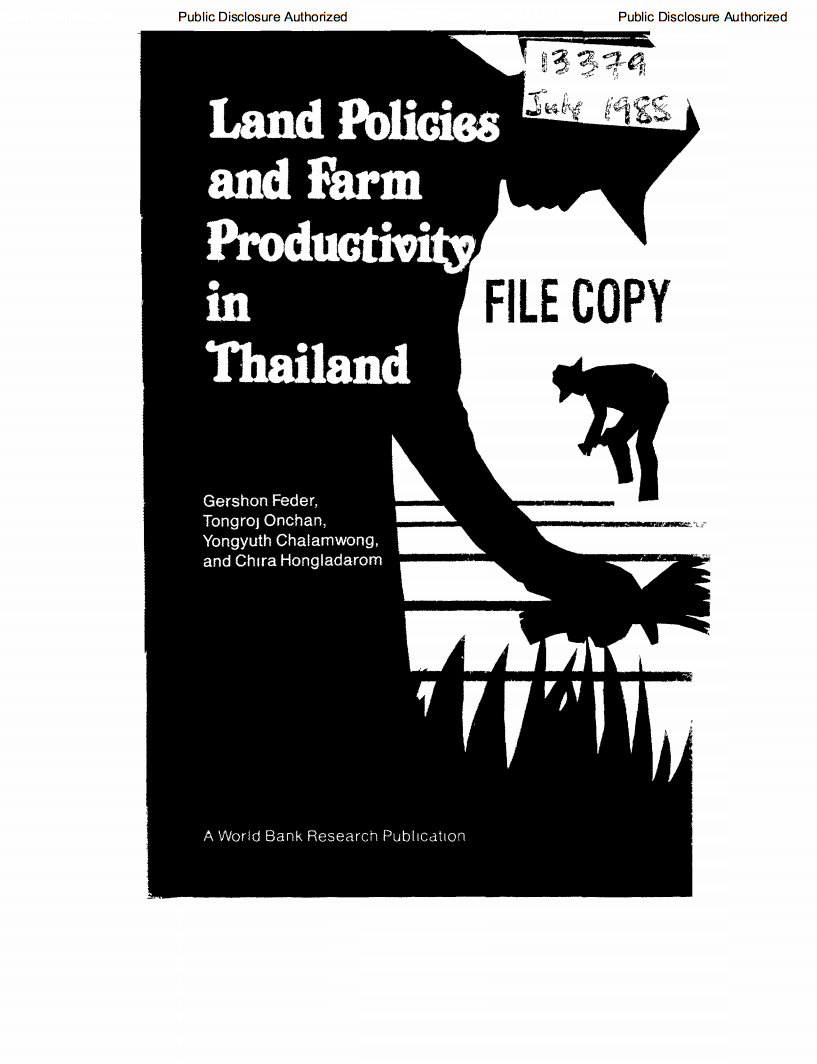The establishment or upgrading of cadastres and land registration systems is viewed by many as an essential infrastructure investment to be considered by less developed countries. Nevertheless, while many will agree that cadastres and land registration are useful, a decision to actually invest in establishing or expanding these activities will be easier to undertake if it is demonstrated that the resulting benefits are higher than those of other public investments. The purpose of this paper, therefore, is to report the results of a recent study undertaken in rural Thailand.






